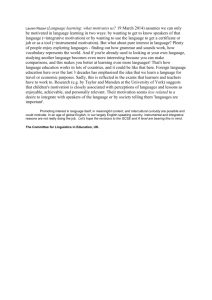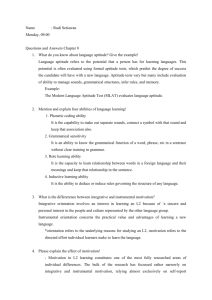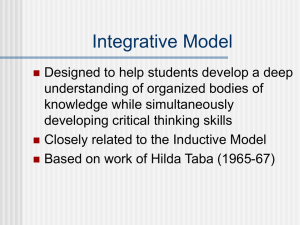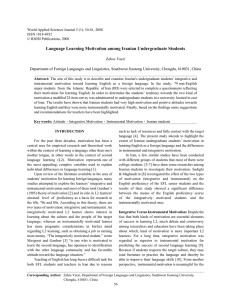Motivation for second language learning
advertisement
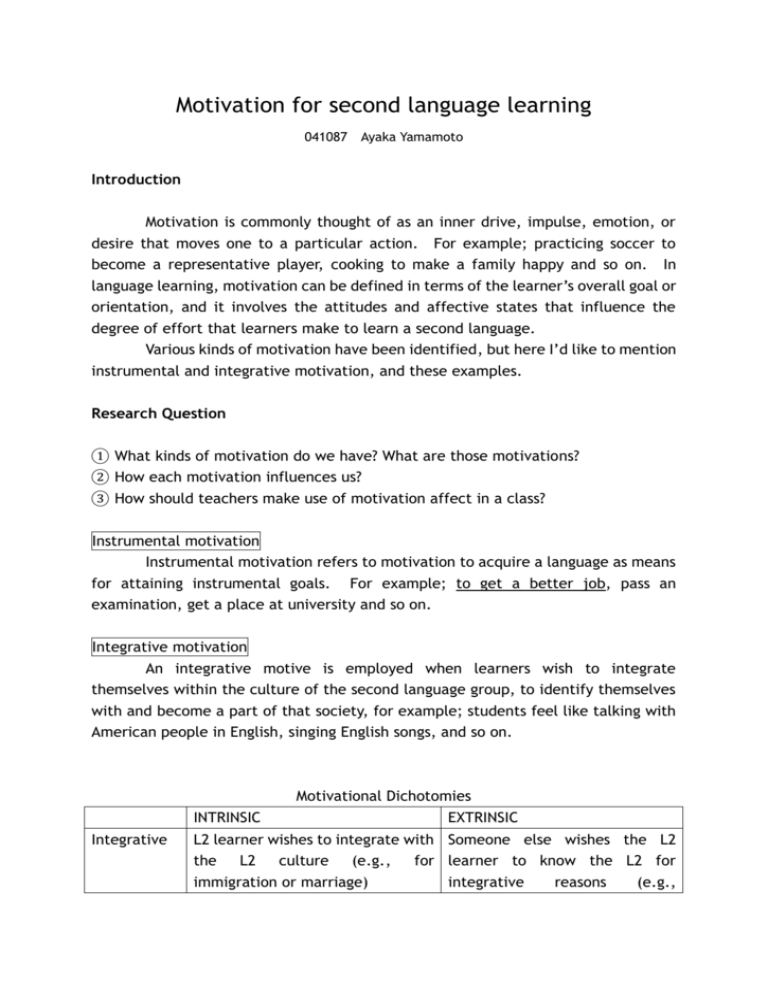
Motivation for second language learning 041087 Ayaka Yamamoto Introduction Motivation is commonly thought of as an inner drive, impulse, emotion, or desire that moves one to a particular action. For example; practicing soccer to become a representative player, cooking to make a family happy and so on. In language learning, motivation can be defined in terms of the learner’s overall goal or orientation, and it involves the attitudes and affective states that influence the degree of effort that learners make to learn a second language. Various kinds of motivation have been identified, but here I’d like to mention instrumental and integrative motivation, and these examples. Research Question ① What kinds of motivation do we have? What are those motivations? ② How each motivation influences us? ③ How should teachers make use of motivation affect in a class? Instrumental motivation Instrumental motivation refers to motivation to acquire a language as means for attaining instrumental goals. For example; to get a better job, pass an examination, get a place at university and so on. Integrative motivation An integrative motive is employed when learners wish to integrate themselves within the culture of the second language group, to identify themselves with and become a part of that society, for example; students feel like talking with American people in English, singing English songs, and so on. Motivational Dichotomies INTRINSIC Integrative EXTRINSIC L2 learner wishes to integrate with Someone else wishes the L2 the L2 culture (e.g., for learner to know the L2 for immigration or marriage) integrative reasons (e.g., Japanese parents send kids to Japanese-language school) Instrumental L2 learner wishes to achieve goals External power wants L2 learner utilizing L2 (e.g., for a career) to learn L2 (e.g., corporation sends Japanese businessman to U.S. for language training) To motivate various students, teachers should have some concrete plan, for example; Instrumental motivation Integrative motivation To know the reason why the students study English (to get a job, examination, etc) To give them lessons or tasks which suit each student. To be familiar with foreign culture (not only English culture) To exchange with foreign students using internet, letters, e-mail and so on. Besides, teachers need to be careful of the following items, and check them. Instrumental motivation What’s the purpose the student need to learn English? Are the tasks authentic and interesting? Do you utilize useful tool (internet, books and so on) ? Integrative motivation Do you grasp different cultures from relative viewpoint? Do you try to know pop culture about English? What’s foreign culture are students interested in?
